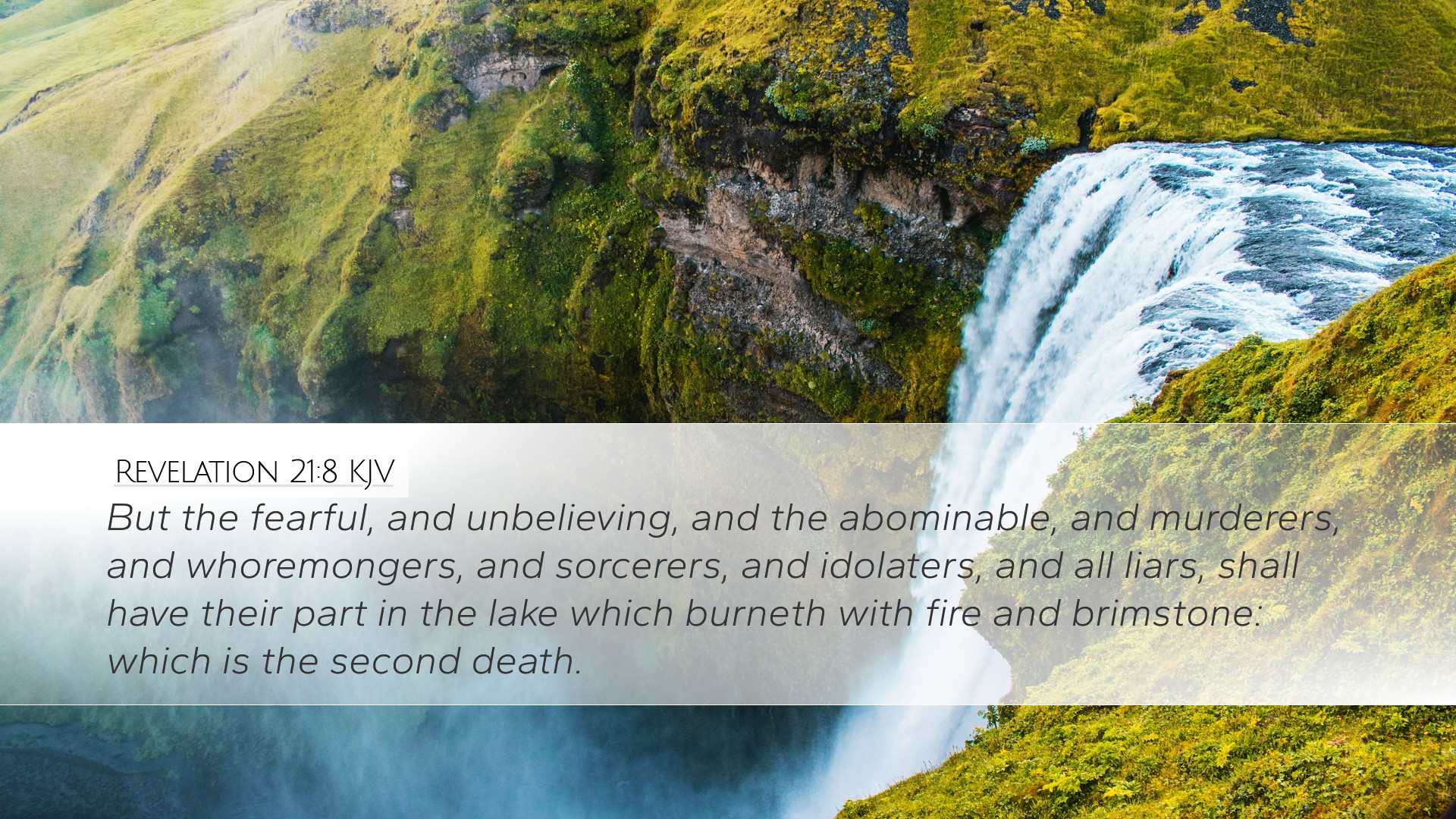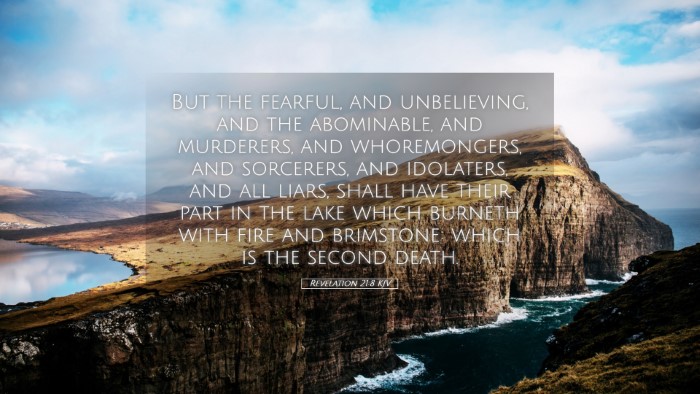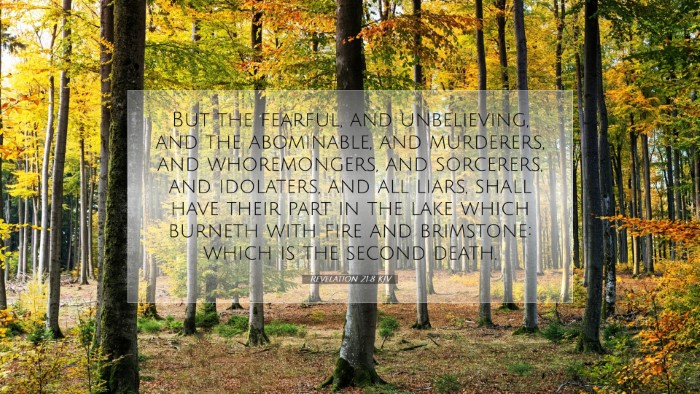Commentary on Revelation 21:8
The verse Revelation 21:8 reads as follows:
“But the fearful, and unbelieving, and the abominable, and murderers, and whoremongers, and sorcerers, and idolaters, and all liars, shall have their part in the lake which burneth with fire and brimstone: which is the second death.”
Introduction
This verse serves as a stark warning about the consequences of sin and a powerful conclusion to the depictions of the new heaven and the new earth. Various commentaries provide nuanced insights into the implications this verse carries for believers and the broader moral fabric of humanity.
Exegesis of Key Terms
Understanding this verse requires a close examination of several key terms:
- Fearful: Refers not just to fear but can suggest a lack of faith and courage in facing God’s truth.
- Unbelieving: Indicates those who have rejected faith in Christ. This rejection is a fundamental marker of spiritual death.
- Abominable: Encompasses a wide variety of sins that are detestable to God, often linked to idolatry and false worship.
- Murderers: This includes not just physical violence but extends to hatred and animosity, which Jesus links to murder in the heart.
- Whoremongers: The term speaks to sexual immorality and the abandonment of God’s design for sexuality.
- Sorcerers: This refers to those involved in witchcraft and the occult, acts that signify a rebellion against divine authority.
- Idolaters: Pertains to anyone who worships something or someone other than God, placing created things above the Creator.
- Liars: This encompasses not only falsehoods spoken but also a lifestyle characterized by dishonesty, antithetical to the nature of God who embodies Truth.
Theological Implications
Revelation 21:8 has profound theological implications:
- Judgment: The culmination of God's judgment is stark and unequivocal. The listing of sins highlights the seriousness of these transgressions in the divine economy.
- Grace and Mercy: This passage juxtaposes the fate of the unrepentant against the stark reality of God's grace offered through Christ. There remains an opportunity for repentance (see 2 Peter 3:9).
- Eschatological Context: Understanding this verse within the broader eschatological framework of Revelation emphasizes the dichotomy between the faithful and the unfaithful.
Insights from Public Domain Commentaries
Matthew Henry
Henry emphasizes the seriousness of the judgment depicted in this passage. He points out that the fearful and unbelieving reflect the heart of humanity that seeks safety in doubt rather than faith. He notes:
“The fearful are those who do not trust in God, and the unbelieving those who neglect His grace.”
He elaborates on the idea that it is not merely sins that condemn, but a lack of faith and true repentance. The lake of fire is described as a vivid metaphor for ultimate separation from God, serving as a dire warning for all who might take their relationship with God lightly.
Albert Barnes
Barnes takes a pastoral approach, stressing that while the language is severe, it is also intended to call the reader to a deeper understanding of God's holiness. He writes:
“The list provided serves to awaken the conscience and lead one to recognize the divine standard of righteousness.”
He points to the nature of God’s justice and the absolute need for believers to pursue holiness, echoing the teachings found in the entirety of Scripture. For Barnes, the lake of fire, described vividly here, is an ultimate reality that should prompt reflection on one’s life and choices.
Adam Clarke
Clarke adds to the conversation by analyzing the cultural implications of the sins listed. He notes the particular relevance of the terms in the context of early church communities contending with idolatry, immorality, and social injustice:
“The relevance of the apostles’ warning about idolatry cannot be overstated; it reveals a pressing issue for both ancient and modern believers.”
Clarke also highlights the power of words, particularly regarding liars, emphasizing that dishonesty erodes community and relationship—both with God and one another. This reinforces the call to truth as a foundational aspect of Christian living.
Conclusion
Revelation 21:8 encapsulates a critical message about the eternal consequences of sin and the importance of faith. As pastors, theologians, and students of Scripture, we are called to recognize the depth of God’s justice while celebrating His grace. Each category of sin mentioned serves not just as individual markers but as a holistic view of what is at stake in the believer's walk. This passage implores us to align our lives with God’s will, reinforcing the urgency of evangelism and the profound mercy of salvation through Christ.


